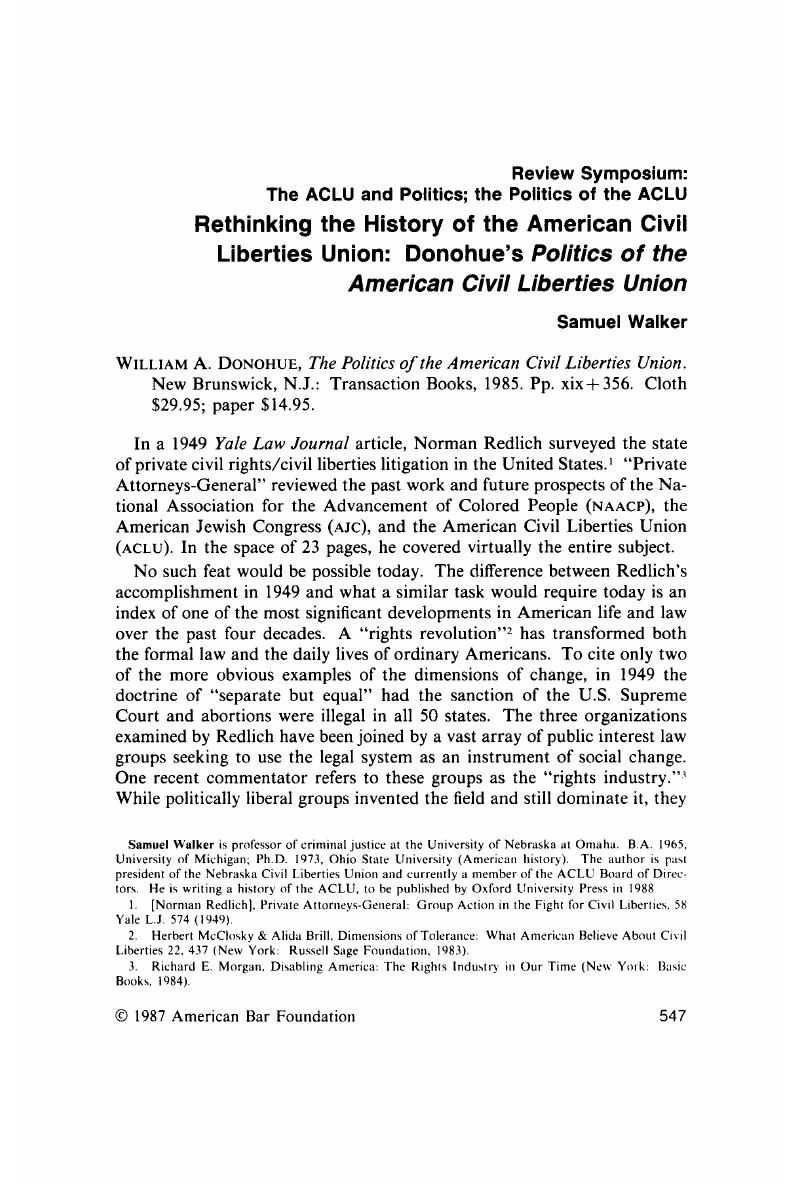No CrossRef data available.
Published online by Cambridge University Press: 20 November 2018

1 [Norman Redlich], Private Attorneys-General: Group Action in the Fight for Civil Liberties. 58 Yale L.J. 574 (1949).CrossRefGoogle Scholar
2 Herbert McClosky & Alida Brill, Dimensions of Tolerance: What American Believe About Civil Liberties 22, 437 (New York: Russell Sage Foundation, 1983).Google Scholar
3 Morgan, Richard E., Disabling America: The Rights Industry in Our Time (New York: Basic-Books, 1984).Google Scholar
4 But see the reflections of an “insider,” former ACLU Executive Director Aryeh Neier, Only Judgment: The Limits of Litigation in Social Change (Middletown, Conn.: Wesleyan University Press. 1982).Google Scholar
5 The best summary of the ACLU's role is Norman Dorsen, The American Civil Liberties Union: An Institutional Analysis, Tulane L.J. 6 (1984).Google Scholar
6 An oft-cited criticism of the changing ACLU at a particularly critical juncture is Politics and the ACLU, in Joseph Bishop, Jr., Obiter Dicta (New York: Atheneum, 1971).Google Scholar
7 Murphy, Paul L., World War I and the Origin of Civil Liberties in the United States (New York: W. W. Norton, 1979).Google Scholar
8 In fairness to Donohue, it should be noted that virtually every historian and biographer has been mystified by Baldwin's political odyssey. See Lamson, Peggy, Roger Baldwin (Boston: Houghton Mifflin, 1976).Google Scholar
9 340 U.S. 144, 152 n.4 (1938).Google Scholar
10 Id. Google Scholar
11 ACLU, Policy Guide, Policy #524.Google Scholar
12 See the essays in Peter Wallington, ed., Civil Liberties 1984 (Oxford: Martin Robertson, 1984), which include a history of the NCCL on the occasion of its 50th anniversary and an illuminating comparison of the NCCL and the ACLU by ACLU President Norman Dorsen.Google Scholar